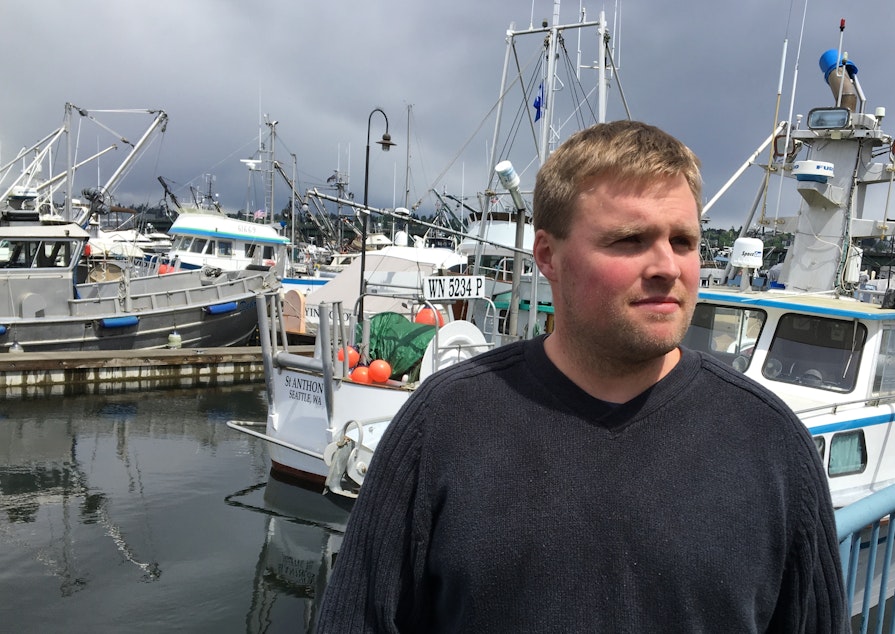Alaskan mega-mine gets 2nd chance. Fishing industry gets angry

The Trump administration has given a new lease on life to a massive Alaskan gold and copper mine that the Obama administration rejected in 2014.
The fishing industry as far away as Washington state is up in arms at the proposed Pebble Project getting a second chance.
The Environmental Protection Agency announced Friday that it had settled a lawsuit brought by a subsidiary of Northern Dynasty Minerals, the Vancouver, British Columbia, company proposing the mine.
Under the settlement, Northern Dynasty's Pebble subsidiary will be allowed to seek Clean Water Act permits to mine and dispose of mine tailings in one of the world's most valuable salmon habitats.
"We understand how much the community cares about this issue, with passionate advocates on all sides," the EPA press release quotes agency Administrator Scott Pruitt as saying.
"The agreement will not guarantee or prejudge a particular outcome but will provide Pebble a fair process for their permit application and help steer EPA away from costly and time-consuming litigation. We are committed to listening to all voices as this process unfolds."
Clash of titans
The proposed mine would sit above what is called a world-class deposit of gold, copper, molybdenum and silver. It would also sit above Alaska's Bristol Bay, where thousands of gillnetters from Alaska, Washington and other states fish for wild sockeye salmon each summer.
By settling Northern Dynasty's lawsuit, the Trump administration has revived a clash of economic titans: one of the world's most valuable mineral deposits versus the world's most valuable salmon runs.
"We bring our money back here," commercial fisherman Ben Blakey of Seattle said. He and his family head to Bristol Bay each summer to gillnet for sockeye salmon.
"We pay our mortgages with the money we make fishing up there."
Blakey's brothers are already in Bristol Bay, preparing for the sockeye season that starts in June. He said he and his wife will head up shortly.
Blakey said his biggest fear is that his son won't be able to continue the family's tradition of fishing Bristol Bay.
"It's not just us," he said. "Thousands of other people who head up there every summer — there’s a lot of people depending on those fish. I’d be concerned it could all go away, all be destroyed."
"President Trump’s administration is making an appalling mistake, siding with these Canadian miners over American jobs," Washington Sen. Maria Cantwell said at Seattle's Fishermen's Terminal on Friday.
EPA in 2014 determined that the mine — which would occupy as much land as Manhattan — would have unacceptable, irreversible impacts on the watershed and its salmon. It would include one of the largest earthen dams in the world to hold back billions of tons of acidic mine waste. The dam would have to be maintained in perpetuity to keep toxic runoff from contaminating the watershed.
"Big mines have accidents. There’s very, very few that have not had spills and failures," Dennis McLerran, the Northwest regional head of the EPA under Obama, said Friday.
In its suit, Northern Dynasty said that EPA had manipulated scientific findings to put the area off-limits to mining.
The settlement allows EPA to rely on its scientific assessment of how mining would affect the Bristol Bay watershed.
"The science was done over three years and relied heavily on research done by University of Washington fisheries scientists over the past 40 to 50 years," McLerran said.
The university has had a permanent field station for salmon research in the Bristol Bay basin since 1947.
A smaller mine?
The Northern Dynasty statement said the company will propose a smaller mine than last time, with "demonstrable environmental protections."
Cantwell said even a smaller mine would be unacceptable above such important salmon streams.
"It’s the wrong idea in the wrong place, and we are going to use every tool available to stop this effort," she said.
McLerran said he did not believe the company's claim to want a smaller mine.
"What they filed with [the Securities and Exchange Commission], their plan is for a massive mine, and that massive mine would beget other massive mines," he said.
The company has two and a half years to apply for a new mining permit from the Army Corps of Engineers.
Permitting is typically a years-long process. A final decision might not come until after a new presidential administration is in office.
John Ryan loves getting tips and documents. He can be reached at jryan@kuow.orgor on the encrypted Signal or WhatsAppapps at 1-401-405-1206 (whistleblowers, never do so from a work device, account or location). For greatest security, use KUOW's SecureDrop portal. Snail mail is also a safe way to reach him confidentially: KUOW, 4518 University Way NE #310, Seattle, WA 98105. Don't put your return address on the outside.

